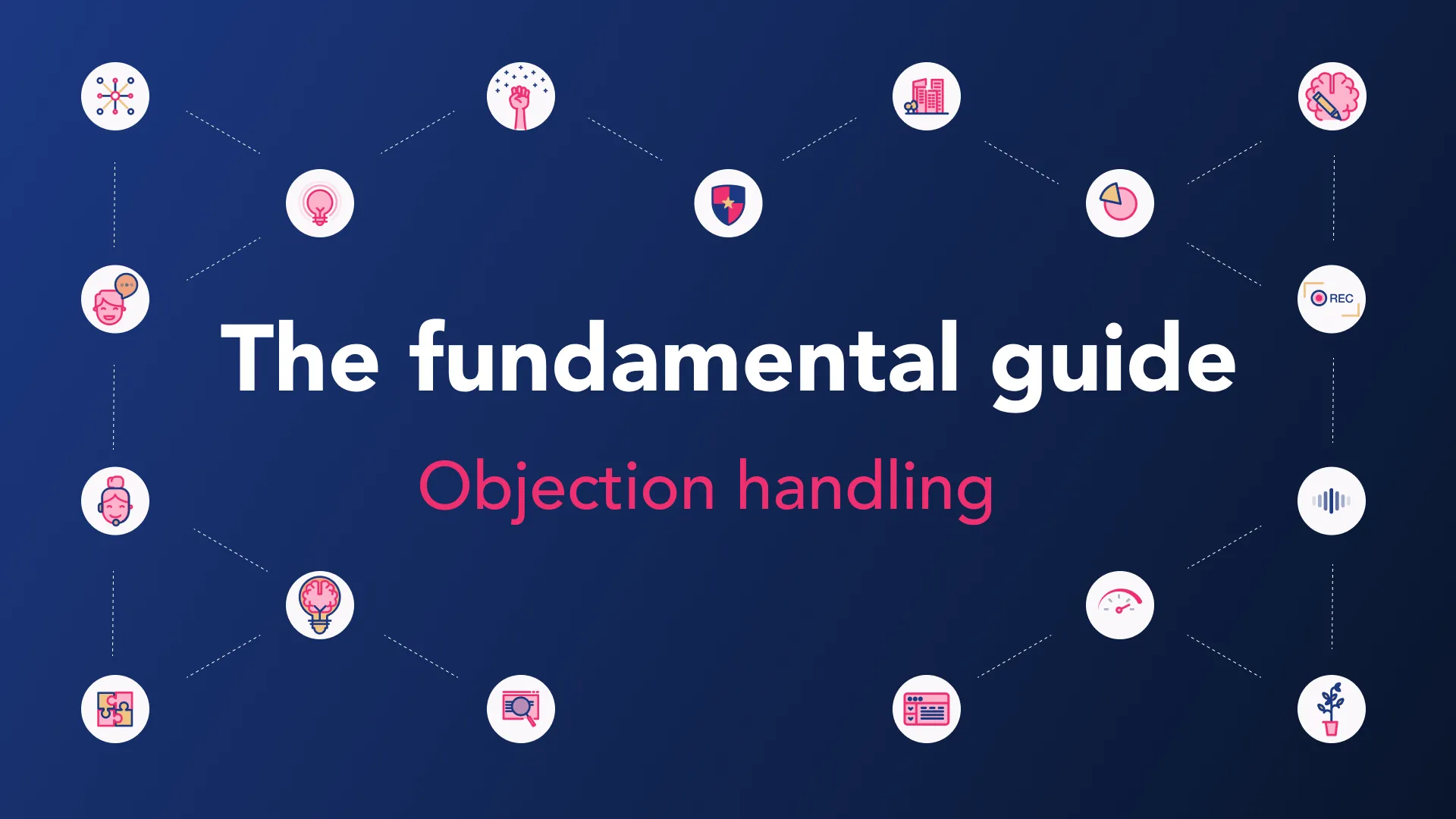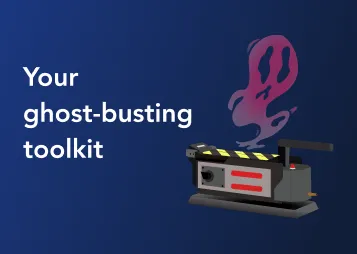60-Second Summary
Sales objections aren’t deal-killers - they’re opportunities to deepen relationships and prove value. Mastering sales objection handling requires empathy, active listening, and a structured approach. Common objections like pricing, priority, existing solutions, stakeholder alignment, and lack of time can be reframed by acknowledging concerns, asking open-ended questions, and connecting your solution to the prospect’s stated goals. Key Do’s include: actively listening, empathizing, preparing responses, and offering value-driven insights. Don’ts include: arguing, dismissing objections, bad-mouthing competitors, or ignoring red flags. Crucially, know when to concede - if the prospect doesn’t fit your ICP, gracefully step back while maintaining a positive relationship. Done well, objection handling strengthens credibility, improves close rates, and transforms challenges into long-term sales opportunities.
---
In the world of sales, objections are an inevitable part of the game. While they may seem like obstacles, they may actually be opportunities in disguise.
Successfully handling objections can be the key to closing deals and building strong relationships with your prospects.
What is objection handling?
Objection handling is the skill of addressing concerns and reservations that potential customers express during the sales process. These objections can be verbalized in various forms, from pricing concerns to doubts about the product's relevance. Effective objection handling is not about arguing or convincing; it's about understanding, empathizing, and providing solutions that align with the prospect's needs and goals.
What do sales objections really mean?
Lots of people think that when a prospect gives an objection, they are simply trying to get rid of you as quickly as possible. And in some cases they might be. But before we dive into specific objection-handling strategies, it's crucial to understand what objections might also signify.
Sales objections often represent:
- Uncertainty - stemming from uncertainty or fear of making the wrong choice. Prospects may need reassurance or additional information to feel confident.
- Prioritization - some objections reflect a prospect's need to prioritize their expenses or time. They want to ensure that your product or service aligns with their current needs.
- Comparison - prospects might be comparing your solution to alternatives. Objections can be a sign that they are considering multiple options.
Understanding these underlying motives can guide your objection-handling approach. You need to get under the skin and discover what is really going on.
As a few general rules:
- Try to really understand what they are saying and make it clear that you understand.
- Show empathy for their situation and be human.
- Never argue, do not bad-mouth competitors or the prospect’s current approach to anything.
- Focus on their goals and challenges and make a common understanding a key outcome of the conversation.
- Ask open questions that encourage the conversation to develop further like ‘Tell me more about X’ or ‘Can you explain your thoughts on Y a little further’.
- Remember: the role of a cold call is not to book a meeting, it is to qualify the prospect for the future. Is this prospect worth your time and energy? Good salespeople disqualify as much as they qualify.

Top tips for sales objection handling
To nail objection handling in sales, think about how you can:
- Actively listen: pay close attention to what the prospect is saying, and ask clarifying questions to ensure you understand their objection fully.
- Empathize: show empathy and understanding. Acknowledge the prospect's concerns and express your willingness to address them.
- Be prepared: anticipate common objections and have well-thought-out responses ready.
- Stay calm and upbeat: maintain a positive attitude, even when faced with challenging objections. Your demeanor can influence the prospect's perception.
- Provide value: offer value-driven solutions that align with the prospect's needs and demonstrate how your product or service can address their pain points.
- Be curious: objections should not be the end of the conversation. Always look for ways you can get more information by asking the right questions. Esteemed negotiation coach, Chris Voss suggests the mirroring technique to get prospects to expand on their answers.
Now, let's explore how to handle the most common sales objections.
How to handle the pricing objection
The price objection is one of the most common objections sales professionals encounter. Here's how to effectively handle it:
Step 1: Acknowledge the objection.
Begin by acknowledging the prospect's concern. Say something like, "I understand that price is an important factor for you." and keep this top of mind as you respond.
Step 2: Explore the perception of value.
Emphasize the value your product or service delivers through real-life stories and broader contexts. Highlight ROI and long-term cost savings. Perhaps demonstrate this with a customer success story.
Step 3: Be flexible.
If possible, provide alternative pricing plans or options that can accommodate the prospect's budget - even if only for a trial period.
Step 4: Ask questions.
If the prospect doesn't provide specific reasons for their price objection, ask them to elaborate. This can help you tailor your response more effectively.
How to handle the objection 'This isn't a priority for me'
When a prospect says your offering doesn't relate to a priority problem, consider these steps:
Step 1: Find out what is the priority.
Ask the prospect to elaborate on their current priorities and challenges. This will help you tailor your response, as their priority might relate to areas of your offering that you haven’t brought up.
Step 2: Educate.
Share relevant information about why your product or service could actually help address their priorities. Your product and their perception of their priority might be more aligned than they realize.
Step 3: Offer a trial or pilot.
Suggest a low-risk trial or pilot program to demonstrate the value of your solution.
Step 4: Stay in touch.
If the prospect's priorities change in the future, you'll be top of mind if you maintain a relationship.

How to handle the objection 'We already have a solution in place'
When prospects claim to have an existing solution, use these strategies:
Step 1: Differentiate yourself.
Highlight what makes your product or service unique and potentially superior to their current solution.
Step 2: Offer a comparison.
Provide a side-by-side comparison that illustrates the advantages of your offering.
Step 3: Ask about contract end dates.
Inquire about when their current contract or commitment ends, leaving the door open for future discussions.
Step 4: Respect their decision.
Show respect for their current choice while subtly exploring any pain points or shortcomings in their current solution.
How to handle the objection 'I’d need to speak with other stakeholders'
When prospects want to involve other decision-makers, you have a big opportunity. You need to understand
- Who these decision-makers are
- What exactly they would be discussing with your prospect
- How you can facilitate and encourage this conversation
Step 1: Support their process.
Acknowledge the need for consensus and the importance of involving all stakeholders and position yourself as the partner in the process
Step 2: Provide collateral.
Offer collateral materials or case studies that can be shared with other decision-makers.
Step 3: Schedule a meeting.
If possible, schedule a follow-up meeting with all relevant parties present to address their concerns collectively.
Step 4: Stay involved.
Continue to follow up and provide assistance throughout the decision-making process.
How to handle the objection 'I don't have time’ or ‘Just send me an email'
When a prospect brushes you off with an email request, take these steps:
Step 1: Respect their time.
Acknowledge their busy schedule and the value of their time. Offer “with that in mind, I don’t want to waste any of your time, what information would be valuable to send?’ or ‘Can we book a 5-minute call for another time so you can ask the exact questions you want answers to?”
Step 2: Follow up by email.
Send a well-crafted, concise message summarizing the key points and keeping it focused on the priorities and information you were able to confirm with them.
Step 3: Diarize a follow-up call.
Make an note for yourself to give them a call in the future at a time that would be better for them, taking into account the day of the week, the time and how many other priorities they mentioned which are ahead of what it is you're discussing with them.
When and how to accept sales objections
There are times when it's in your best interest, as well as your prospect's, to concede gracefully.
Knowing when and how to accept their objection is a critical aspect of being a skilled and ethical sales professional.
Your sales team should be clear on what a qualified prospect looks like, this includes details around ICP and the sales methodologies you follow. If it becomes clear that your product or service genuinely doesn't align with the prospect's needs, it's better to acknowledge this early. Pushing a mismatched solution can lead to customer dissatisfaction, churn and a damaged reputation. If your prospect has unrealistic expectations, it's vital to set realistic boundaries. Be transparent about what your offering can and cannot achieve.
So how do you let your prospect go?
Step 1: Respectfully acknowledge the prospect's concerns and decision
Step 2: Show appreciation for their time and consideration.
Step 3: As far as possible, maintain a relationship.
Show your willingness to stay in touch and be of assistance in the future. For example, you might be able to offer them alternative service providers that may better suit their needs. Building a positive relationship can lead to opportunities down the road.
Remember, knowing when to concede doesn't mean giving up easily. It means recognizing when the prospect's needs and priorities differ significantly from what you can offer. It's a testament to your integrity as a sales professional.
Sales objection handling is a fundamental skill for successful sales professionals.
Objections are not roadblocks but opportunities to demonstrate your value and commitment to your prospects. By understanding the motivations behind objections and employing the right strategies, you can transform objections into closed deals and long-lasting client relationships. So, embrace objections, refine your objection-handling skills, and watch your sales prospecting efforts yield remarkable results.
Shelley Lavery is the COO and Co-Founder of Jiminny, the leading conversation intelligence and sales coaching platform that helps companies maximize their revenue. With over a decade of experience in coaching B2B sales teams, Shelley was previously Group SVP of Sales at Reward Gateway now leading the conversation intelligence discussion with expertise and insight.





.webp)






